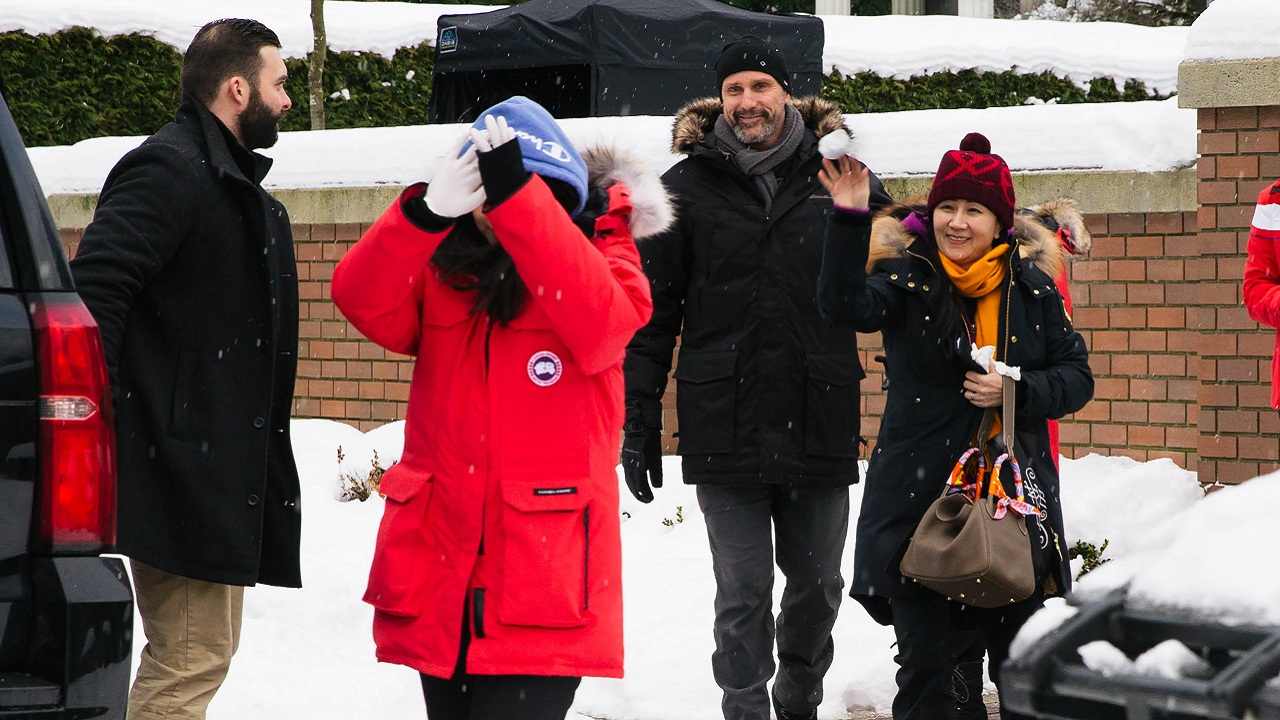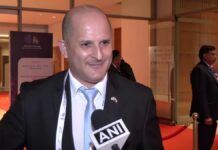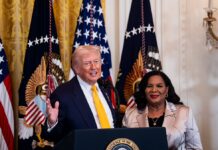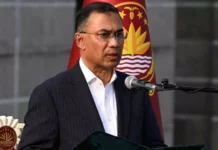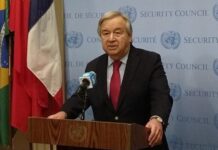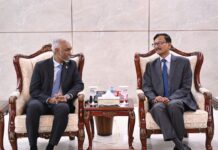VANCOUVER: Canadian government lawyers on Wednesday laid out a case for extraditing a senior Huawei executive to the United States, saying it is based on “a fraud on a bank.”
The US alleges Meng Wanzhou, the chief financial officer of tech giant Huawei, lied to the bank HSBC about Huawei’s relationship with its Iran-based affiliate Skycom, putting the bank at risk of violating US sanctions against Tehran.
Meng has denied the allegations. “Fraud is at the heart of this case,” Crown counsel Robert Frater told the court. “Lying to a bank to obtain financial services is fraud,” he said, disputing defense claims that the US was effectively, through its extradition treaty, seeking to get Canada to enforce US banking sanctions against Iran that Canada and other allies repudiated.
Were Canada to agree to Meng’s extradition, defense lawyer Eric Gottardi said earlier this week, “we would be allowing a foreign state to criminalize conduct in Canada” that is not illegal in this country.
Frater said the sanctions merely provide context “to better understand why HSBC’s economic interests were at risk.” Defense arguments, he said, “only serve to obscure the essence” of Meng’s actions.
In order to win extradition, lawyers for Canada’s attorney general on behalf of the US Justice Department must demonstrate that the US accusations against Meng would be considered a crime in Canada if they’d occurred here. This is a key test referred to as double criminality.
Many of the arguments for and against Meng’s extradition so far have relied on a precedent case involving arms dealer Karlheinz Schreiber, who was sent to Germany in 2009. He was prosecuted for his role in a kickbacks scheme in the sale of planes and tanks to Canada, Thailand and Saudi Arabia.
But “there is no case exactly like this one,” Frater commented.
In court filings, the Crown said Meng’s actions amounted to “a fraud on a bank,” saying she made “several misrepresentations to a bank to secure financial services.” They assert that Huawei controlled the operations of Skycom in Iran; that its staff used Huawei email accounts and security badges; and its bank accounts were controlled by Huawei. Meng, however, told HSBC executives in a presentation in Hong Kong in 2013 that Huawei no longer owned Skycom and that she had resigned from that company’s board.
From 2010 to 2014, meanwhile, HSBC and its American subsidiary cleared more than US 100 million worth of transactions related to Skycom through the US. “Simply put, there is evidence she deceived HSBC in order to induce it to continue to provide banking services to Huawei,” the Crown said in court documents.
During this period, HSBC was Huawei’s most important international bank with dealings in over 40 countries. It coordinated a USD 1.5 billion syndicated loan to Huawei, contributing US 150 million of its own funds. Had HSBC known of Huawei’s alleged skirting of US sanctions against Iran it would have reassessed its ties to Huawei, Frater said.
“The bank has to ask if doing this business is going to lose them other business,” he said. “The bank is entitled to honesty in being able to assess whether it is going to be at risk.” The Crown noted that HSBC forfeited US 1 billion and paid US 665 million in fines for past sanctions violations by conducting transactions with Cuba, Iran, Libya, Sudan and Myanmar.
Violating its deal with US prosecutors allowing it to avoid a trial in that case “could have subjected HSBC to criminal charges relating to the previous conduct,” it said in court filings.
“Continuing a relationship with Huawei/Skycom also exposed HSBC to new civil and criminal sanctions.” Meng’s arrest during a stopover of a Hong Kong-to-Mexico flight in December 2018 caused a major rift in Canada’s relations with Beijing, which followed up by detaining two Canadians and restricting Canadian agricultural imports.
The arrests on espionage suspicions of former diplomat Michael Kovrig and businessman Michael Spavor have been widely interpreted as retribution by Beijing aimed at pressuring Canada to free Meng.
While Meng is out on bail, the two Canadians remain in China’s opaque penal system.
On Tuesday, Prime Minister Justin Trudeau rejected domestic calls to free Meng in a “prisoner swap” for the pair in order to normalize relations with China. (AFP)

